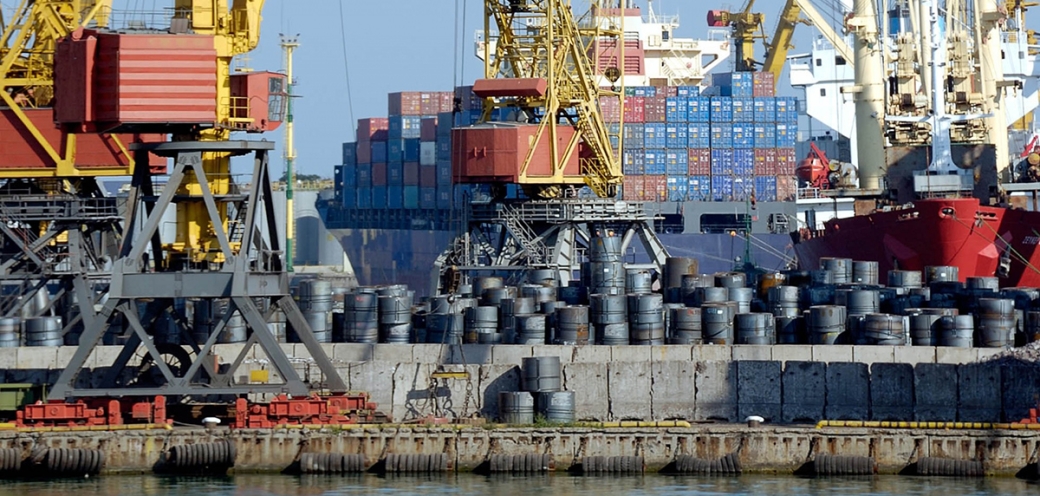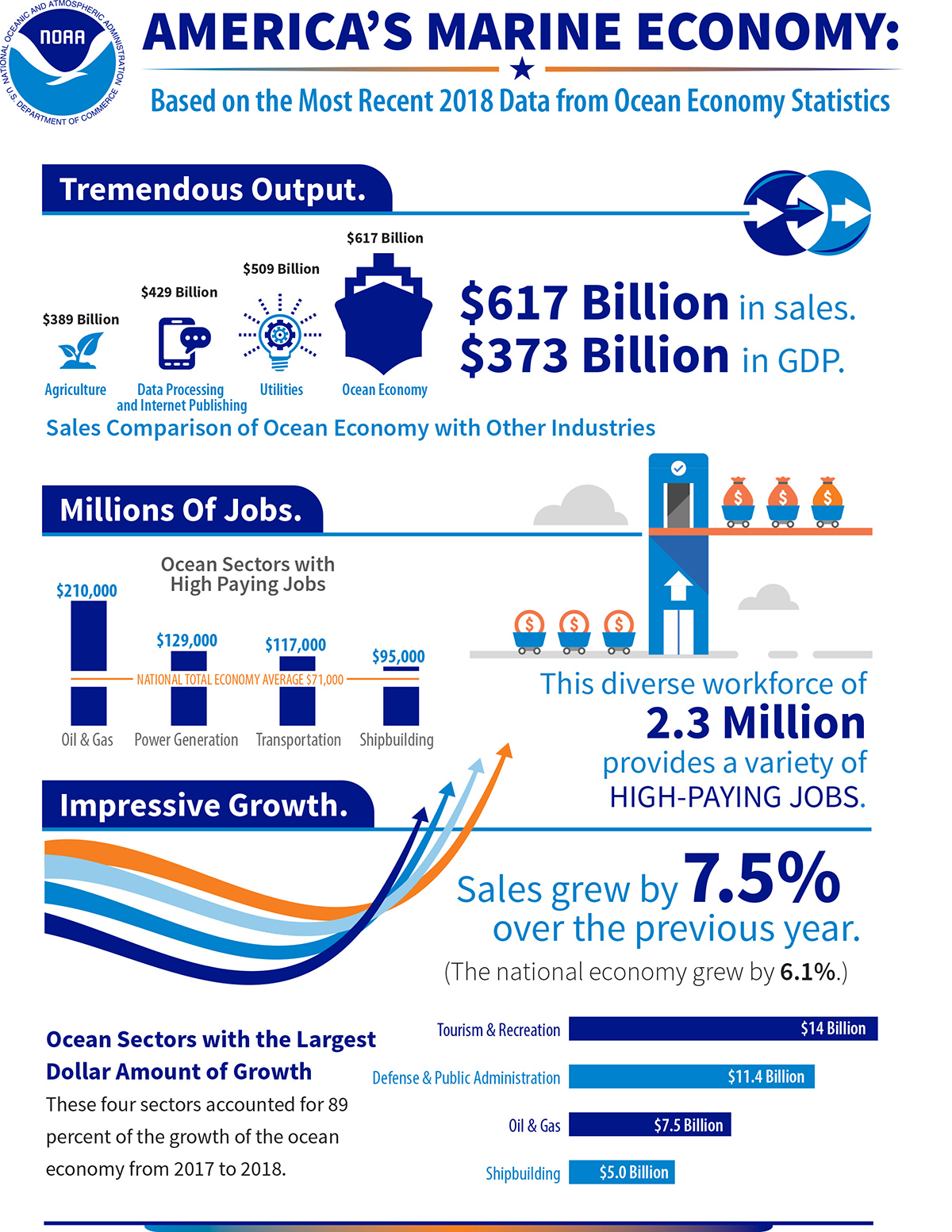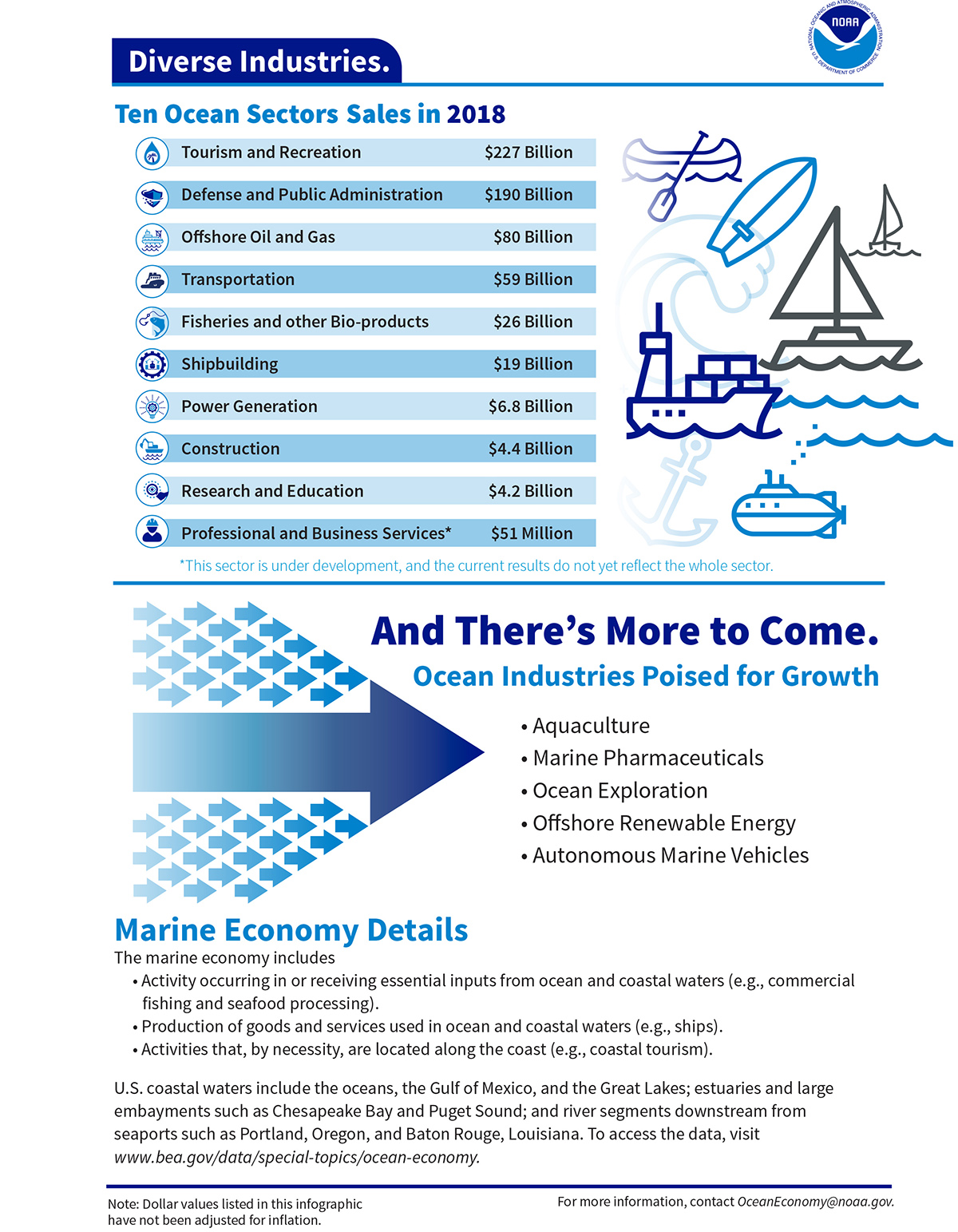America's Blue Economy Worth Nearly $373 Billion

America’s marine economy, including goods and services, contributed about $373 billion to the nation’s gross domestic product in 2018 and grew faster than the nation’s economy as a whole, according to the marine economy statistics released today by two Department of Commerce agencies.1
Today’s press release from NOAA and the U.S. Bureau of Economic Analysis marks the first time the United States will officially measure the economic contributions of the oceans and Great Lakes in the national income accounts. For many years, other market sectors such as outdoor recreation or the arts and culture industries have had special “satellite accounts” that provide considerably more details than are available in the standard accounts. Although the ocean economy consistently generates a larger share of the U.S. economy than other major natural resources, there was no official measurement until now.
This pioneering effort is the culmination of years of dedicated innovation, advocacy, and research. Beginning in 1999, Dr. Charles Colgan, the Center for the Blue Economy’s Director of Research, produced the first measurements of the ocean economy that were consistent with other government economic data from the county to the national levels. This work was part of the National Ocean Economics Program, now housed at the Center for the Blue Economy. In 2015-2016, then U.S. Congressman Sam Farr (D-CA, now retired), along with Representatives Don Young (R-AK) and Lois Capps (D-CA) sponsored legislation which allocated seed money to the effort. The new prototype ocean economy statistics were developed over three years by a team of researchers at NOAA, the Bureau of Economic Analysis, ERG Incorporated, and the Center for the Blue Economy.
“These statistics are the first-of-its-kind estimate of the U.S. marine economy, a primary driver of jobs, innovation and economic growth. Data such as these provide a critical baseline to inform, track progress and accelerate America’s economic recovery.”
For these statistics, experts from NOAA and the Bureau of Economic Analysis considered 10 sectors representing businesses dependent on the nation’s oceans, coasts and Great Lakes between the years 2014 and 2018. Marine-related gross domestic product grew 5.8% from 2017 to 2018, faster than the 5.4% growth of the total U.S. gross domestic product as measured in current dollars. Businesses included in the report also supported 2.3 million jobs in 2018.1

“The marine economy statistics clarify just how dependent America is on our waters. It is nearly impossible for most Americans to go a single day without eating, wearing or using products that come from or through our coastal communities.”

“For the first time, the United States has ocean data that can be compared with our official statistics on other U.S. industries and with the ocean economies of other nations. These prototype statistics offer a baseline for understanding the importance of the ocean economy, including recreation, seafood, transportation and ship building. Businesses, policymakers, and coastal communities can use these economic data as a compass as they chart the way forward.”
The Center for the Blue Economy applauds Dr. Colgan and the research teams at Woods Hole and ERG for the fruition of many years of effort highlighting the importance of the ocean sectors to the U.S. economy.
For More Information
See NOAA Press Release, 6.2.2020: https://www.noaa.gov/media-release/marine-economy-in-2018-grew-faster-than-us-overall
“These prototype statistics are the most comprehensive and accurate produced to date, thanks to the addition of newer, more inclusive data sets. The economic statistics validate previous estimates of the value of the marine economy. The data, report and other materials are available at https://www.bea.gov/data/special-topics/ocean-economy Send any comments or questions to OceanEconomy@noaa.gov. “
Note 1: Taken directly from NOAA Press Release, dated 6.2.2020
